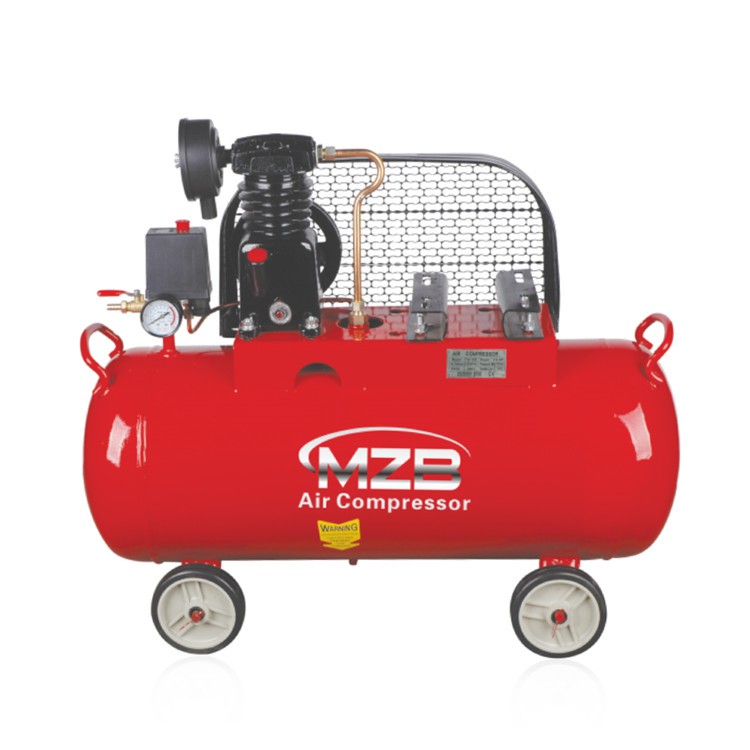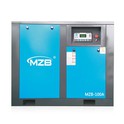Hey there! I'm a supplier of Gasoline Engine Air Compressors, and I've been in this business for quite a while. One of the most common issues that customers bring up is the vibration of these compressors. Vibration can not only be annoying but also lead to premature wear and tear of the machine, affecting its performance and lifespan. So, in this blog, I'm gonna share some tips on how to reduce the vibration of a gasoline engine air compressor.
Understanding the Causes of Vibration
Before we jump into the solutions, it's important to understand what causes the vibration in the first place. There are several factors that can contribute to this problem:
- Imbalanced Components: If the rotating parts of the compressor, such as the crankshaft or flywheel, are not balanced properly, it can cause significant vibration. This imbalance can occur due to manufacturing defects, wear and tear, or improper installation.
- Loose Mounting: If the compressor is not securely mounted to its base or frame, it can vibrate excessively. Loose bolts, nuts, or other fasteners can allow the compressor to move around, causing vibrations.
- Engine Issues: Problems with the gasoline engine, such as misfiring, uneven combustion, or worn-out engine mounts, can also lead to vibration. These issues can be caused by a variety of factors, including dirty air filters, clogged fuel injectors, or low oil levels.
- Airflow Restrictions: Restricted airflow to the compressor can cause it to work harder, leading to increased vibration. This can be caused by dirty air filters, blocked intake vents, or improper ducting.
Solutions to Reduce Vibration
Now that we know what causes the vibration, let's take a look at some solutions to reduce it:
1. Balance the Components
Balancing the rotating components of the compressor is one of the most effective ways to reduce vibration. This can be done by using a balancing machine or by adding counterweights to the imbalanced parts. If you're not familiar with the process, it's best to have a professional do it for you.
2. Secure the Mounting
Make sure the compressor is securely mounted to its base or frame. Check all the bolts, nuts, and other fasteners to ensure they are tight. You can also use vibration isolation pads or mounts to reduce the transfer of vibration from the compressor to the surrounding environment. These pads are made of rubber or other materials that absorb and dampen the vibrations.
3. Maintain the Engine
Regular maintenance of the gasoline engine is essential to keep it running smoothly and reduce vibration. This includes changing the oil and oil filter regularly, cleaning or replacing the air filter, and checking the spark plugs. You should also make sure the engine is properly tuned and that the fuel system is clean and functioning properly.
4. Improve Airflow
To reduce the workload on the compressor and minimize vibration, make sure there is adequate airflow to the machine. Clean or replace the air filter regularly, and check the intake vents for any blockages. You may also need to adjust the ducting to ensure proper airflow.
5. Upgrade the Compressor
If you've tried all the above solutions and the vibration is still a problem, it may be time to consider upgrading to a higher-quality compressor. Look for a compressor that is designed to be quiet and vibration-free, and that has features such as a balanced crankshaft and vibration isolation mounts.


Real-World Examples
Let me share a couple of real-world examples of how these solutions have worked for our customers:
- Case 1: A customer was experiencing excessive vibration in their gasoline engine air compressor. After inspecting the machine, we found that the engine mounts were worn out. We replaced the mounts, and the vibration was significantly reduced.
- Case 2: Another customer had a compressor that was vibrating due to a dirty air filter. We cleaned the filter, and the vibration stopped immediately.
Conclusion
Reducing the vibration of a gasoline engine air compressor is not only important for the comfort of the users but also for the longevity and performance of the machine. By following the tips outlined in this blog, you can minimize the vibration and ensure that your compressor runs smoothly and efficiently.
If you're in the market for a Gasoline Powered Portable Air Compressor, or if you have any questions about reducing vibration in your existing compressor, feel free to reach out to us. We're here to help you find the best solution for your needs.
References
- "Compressor Vibration Analysis and Troubleshooting" - Compressed Air Best Practices Magazine
- "Gasoline Engine Maintenance Guide" - Manufacturer's Manual






